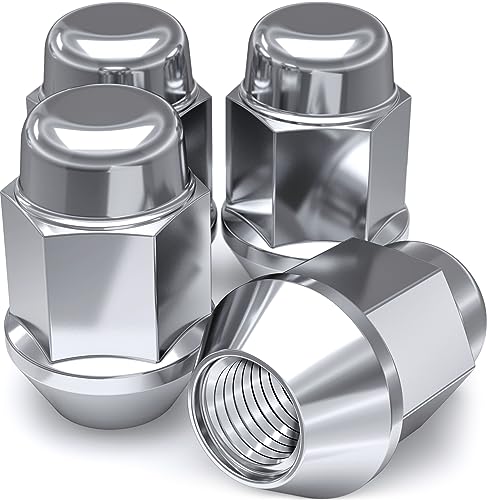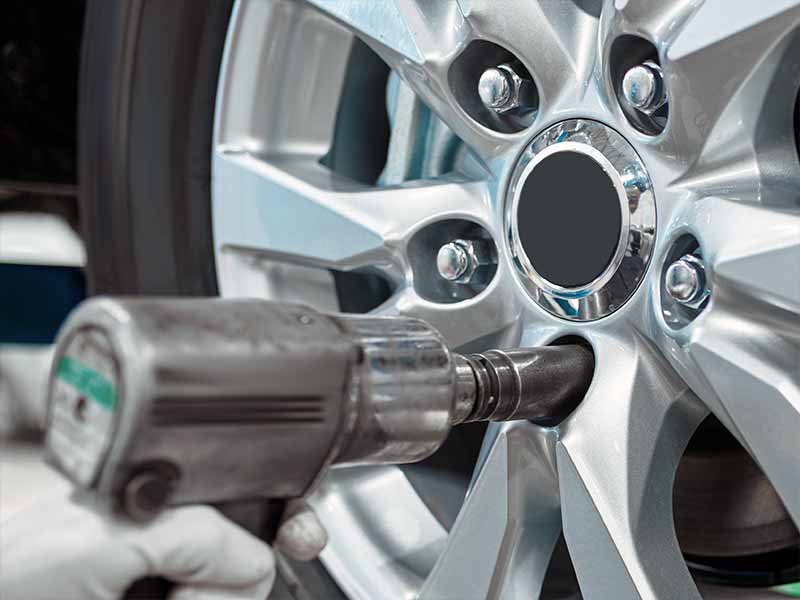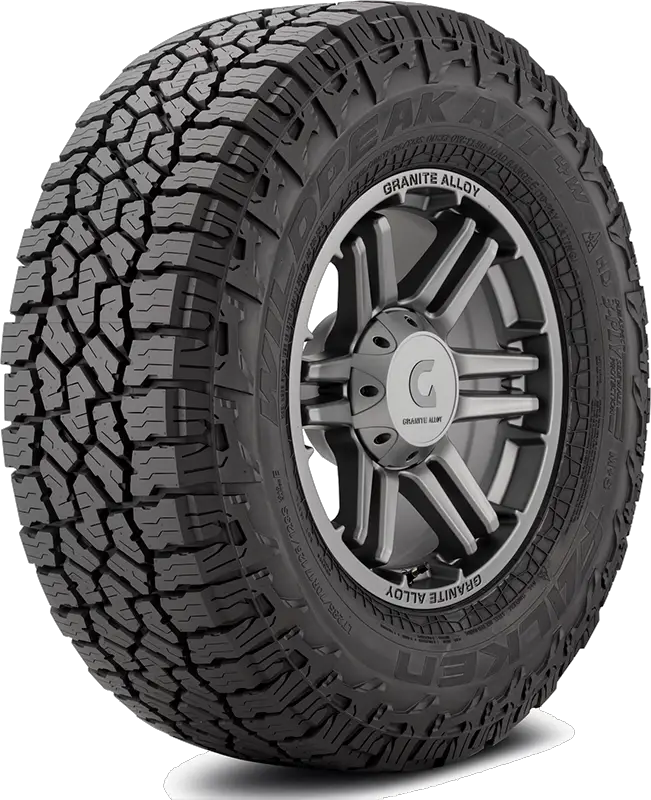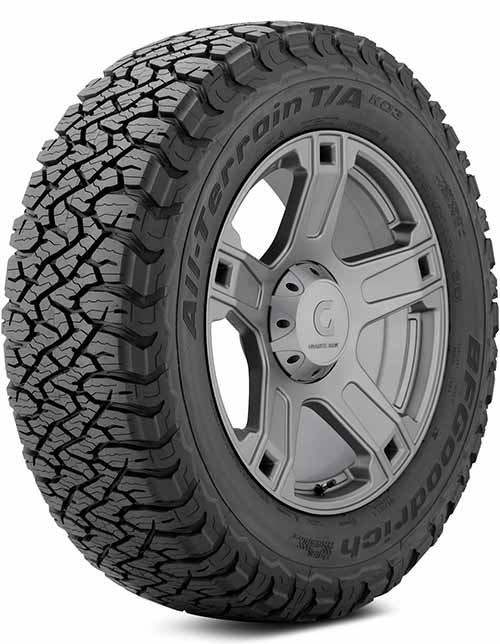Wait – lug nuts are not all the same? That’s right, choosing the right lug nut is more than just a quick trip to the auto parts store. Different vehicles require specific types of lug nuts for a perfect fit.
Lug Nut Seat Types
Lug nut seat types refer to the area of the lug nut that makes contact with the wheel surface. The main types include conical, ball, flat, and mag/shank seat lug nuts, each designed for specific wheel interfaces.
In this article, we’ll dive into the different types of lug nut seats, exploring how each type ensures your vehicle’s wheels stay securely fastened.

Conical Seat Lug Nuts
Conical Seat Lug Nuts
Let’s start with one of the most common types you’ll encounter: conical seat lug nuts. Also known as tapered seat lug nuts, their unique design makes them a favorite for a wide range of vehicles.
Pros of Conical Seat Lug Nuts:
- Compatibility: Widely compatible with a variety of passenger cars and trucks.
- Centering Ability: The tapered design aids in centering the wheel on the hub, improving balance.
- Easy Identification: Their distinctive shape makes them easy to identify and replace.
Cons of Conical Seat Lug Nuts:
- Improper Use Risks: Using the wrong angle of taper can lead to wheel detachment.
- Not Universally Suitable: May not be suitable for all wheel types, especially certain aftermarket wheels.
- Wear and Tear: Over time, the tapered area can wear down, necessitating replacement.
Conical seat lug nuts are a reliable and common choice for many vehicles, offering a combination of safety, performance, and versatility. By understanding their design and ensuring proper use and maintenance, you can drive confidently knowing your wheels are securely attached.

Ball Seat Lug Nuts
Ball Seat Lug Nuts
Ball seat lug nuts stand out in the world of wheel fasteners. Unlike the common conical type, these lug nuts have a rounded or spherical end. This unique shape is not just a design choice but a functional necessity for certain wheels.
Pros of Ball Seat Lug Nuts:
- Specific Fit: Ideal for wheels designed specifically for ball seat nuts, ensuring a precise fit.
- Even Force Distribution: The rounded design promotes even distribution of clamping force, enhancing wheel security.
- Unique for Certain Cars: Commonly used in specific European car models, catering to unique wheel designs.
Cons of Ball Seat Lug Nuts:
- Limited Compatibility: Not as universally compatible as conical seat lug nuts, limiting their use to specific wheel types.
- Mixing Risks: Using them on non-compatible wheels can lead to unsafe conditions and wheel detachment.
- Identification Challenges: Can be harder to distinguish from conical nuts for those unfamiliar with their subtle differences.
Ball seat lug nuts are essential for certain vehicles, ensuring that the wheels are securely attached with the right kind of fit. Their rounded design caters to specific wheel types, emphasizing the importance of matching the lug nut style to your vehicle’s needs.

Flat Lug Nuts
Flat Seat Lug Nuts
Flat seat lug nuts, with their distinct level base, are a key component in the realm of wheel fastening. Unlike their conical or ball counterparts, these lug nuts sit flush against the wheel, providing a different kind of secure fit.
Pros of Flat Seat Lug Nuts:
- Secure Fit: Their flat design ensures a flush and secure fit against the wheel.
- Specific Wheel Compatibility: Ideal for wheels that require a flat mating surface, ensuring proper fastening.
- Stability: Offers stable and even pressure distribution across the wheel’s surface.
Cons of Flat Seat Lug Nuts:
- Limited Application: Suitable only for specific types of wheels designed for a flat seat, limiting their versatility.
- Torque Sensitivity: Requires precise torque application to avoid over or under-tightening.
- Risk of Misuse: Using them on incompatible wheels can result in improper fitting and potential safety hazards.
Flat seat lug nuts play a crucial role in wheel safety for vehicles with specific wheel designs. Their flat base offers a unique fit, essential for the wheels that require them. Always ensure compatibility and proper maintenance to keep your wheels securely in place.

Mag/Shank Seat Lug Nuts
Mag/Shank Seat Lug Nuts
Mag/shank seat lug nuts are a unique category in the lug nut family. These are characterized by a shank or extended portion that helps in aligning the wheel and distributing the load.
Pros of Mag/Shank Seat Lug Nuts:
- Alignment Assistance: The shank helps in aligning the wheel to the hub, aiding in installation.
- Load Distribution: They distribute the clamping force evenly, reducing stress on the wheel.
- Custom Wheel Compatibility: Ideal for certain aftermarket and custom wheels that require this design.
Cons of Mag/Shank Seat Lug Nuts:
- Limited Use: Primarily used for specific wheel types, limiting their application.
- Installation Precision: Requires accurate installation to ensure the shank properly fits into the wheel hub.
- Potential for Misfit: If not matched correctly to the wheel, they can lead to improper fitting and wheel security issues.
Mag/shank seat lug nuts are crucial for certain aftermarket and custom wheels, offering a secure and aligned fit. Understanding their role and ensuring proper use is key to maintaining your vehicle’s wheel integrity and safety.
Ensuring Safety and Performance
No matter what seat lug nuts your car or truck came with from the factory, it’s essential to ensure they’re the right fit. Here are a few pointers:
- Check Compatibility: Always verify that your wheel design is suited for conical seat lug nuts. Using the wrong type can lead to dangerous situations.
- Proper Installation: Tightening lug nuts correctly is key. Learn more about how to tighten lug nuts properly to ensure they’re secure without being over-tightened.
- Regular Checks: Lug nuts can loosen over time. Familiarize yourself with the symptoms of loose lug nuts and perform regular checks.
Resources
Below are some links you may find helpful when learning about tires:
Final Thoughts
In this exploration of lug nut seat types, we’ve covered the essentials of conical, ball, flat, and mag/shank seat lug nuts. Each type plays a crucial role in wheel safety and performance, emphasizing the importance of choosing the right lug nut for your vehicle.
The correct lug nut ensures not only a snug fit but also contributes to the overall safety and longevity of your wheels. Whether you’re a seasoned driver or new to car maintenance, understanding these small but significant details can make a big difference.
Good luck and happy motoring.




